The accent of the world's longest-serving monarch evolved during her long reign – reflecting enormous social shifts that occurred during that time.
Queen Elizabeth II's long reign meant that she saw many changes in the world around her, from rationing and pea-soupers to social media and a global pandemic. As Britain's longest-serving monarch, she also became a global symbol of steadfast principles and stability. Yet, after 70 years on the throne, the Queen left behind a unique and precious legacy that did change with the times: her voice, captured by decades of recording.
Her Majesty's distinctive accent, delivered through public speeches, radio broadcasts, television, and then the Internet, provides a unique insight into how the world changed during her long reign – and how she changed within it. It also adds to growing evidence that our speech patterns remain more flexible throughout the human lifespan than previously thought, absorbing and reflecting our experiences and memories – even far into old age.
Few people leave such a rich and detailed record of their voice. Over the past few days, millions around the world have watched and listened to the late Queen's broadcast on her 21st birthday in 1947. At the time, she was still a princess, but already determined to make a pledge to her people: "I declare before you all that my whole life whether it be long or short shall be devoted to your service."
Leap forward to the 21st Century and her final Christmas broadcast, where she poignantly remembered her late husband and offered warm words to a country traumatised by the Covid-19 pandemic. "Although it's a time of great happiness and good cheer for many, Christmas can be hard for those who have lost loved ones. This year, especially, I understand why," she said.
Even to the untrained ear, the difference between these two recordings is plain. First is the change in her voice itself, which grew deeper and physically matured as she aged, reflecting what happens in most people as we get older. But there are other, more subtle shifts that can be charted in the decades' worth of recordings of the Queen. They are allowing scientists to understand the way in which accents evolve over time, and how they can be influenced by social, cultural and technological developments.
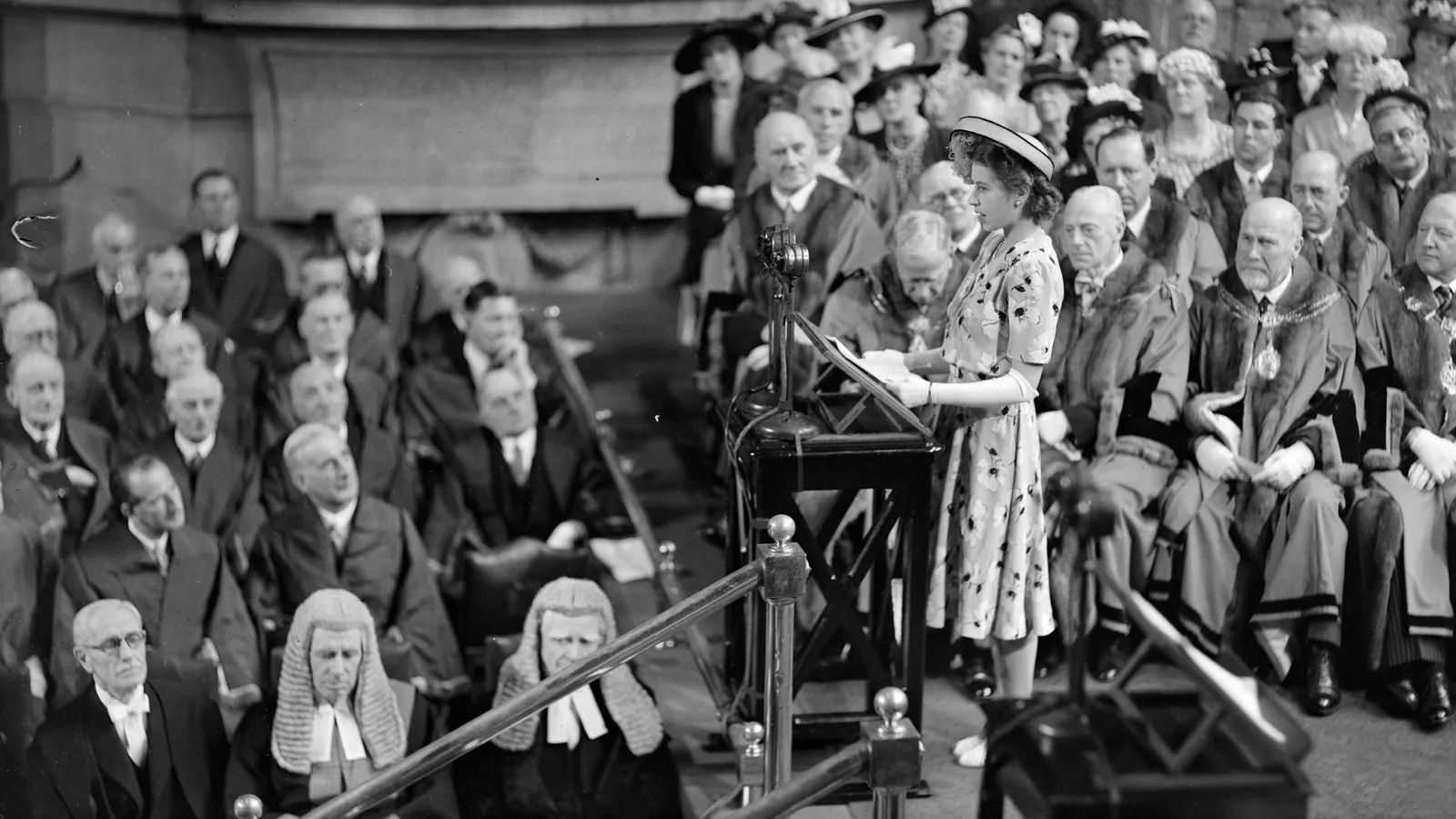 The long public life of the Queen means she left behind a rich legacy of
recordings that show how her voice changed over the decades
The long public life of the Queen means she left behind a rich legacy of
recordings that show how her voice changed over the decades
"Sound change is very slow, so if we want to see how it changes during an adult's lifespan, we need recordings from the same person over several decades," says Jonathan Harrington, a professor of phonetics and director of the Institute of Phonetics and Speech Processing at Ludwig-Maximilians University of Munich. "Received Pronunciation – of which the Queen was a speaker – and its changes from 1950-1980, is especially interesting because of the great social changes and increasing mixture of social classes that took place in England in the 60s and 70s."
Received Pronunciation has been considered as the standard accent of British English since the late 19th Century, although there is an ongoing, long-running debate about how it should be defined and even how widespread it is. It is a form of pronunciation that became associated with the aristocracy, the Royal Family, the British establishment, and stuffy wartime BBC announcements (although the BBC has never imposed the use Received Pronunciation, many announcers before the Second World War spoke with it).
"British-English speaking people still consider the accent (Received Pronunciation) and those like it to be a prestige accent," says Jane Setter, a professor of phonetics at the University of Reading in the UK.
The Queen's own way of speaking became something of a hallmark of Received Pronunciation – leading to one of its other names: The Queen's English. Her Christmas broadcasts, delivered every year, have proven a particularly reliable way of tracking her voice and accent through history.
Together with his colleague Ulrich Reubold, Harrington has analysed the Christmas broadcasts of Queen Elizabeth II in depth to understand how her accent shifted at different points in her life, and why. Over the course of several separate studies, they analysed 35 broadcasts the Queen made between the ages of 26 and 91 years old.
"If we find change in the Queen, then it's reasonable to conclude that similar changes are likely to occur in most adults over their lifespan," says Harrington, when explaining why they chose to focus on the Queen's accent in her Christmas broadcasts. Their research has helped to challenge the idea that our accents remain broadly stable once we reach adulthood. Instead, it appears they are undergoing constant change.
The Queen's accent became less distinctively upper-class, and somewhat more mainstream
Broadly speaking, the factors that shape a human voice and accent over a lifespan fall into two domains. Some changes happen simply because of physiological processes – our vocal tract changes shape as we age while our vocal cords grow thinner and stiffer the older we get. This can lead to a voice becoming higher in pitch, "reedy" and shaky-sounding, but in some women their vocal folds can thicken leading to a lowering of pitch.
Other external factors can also have an impact on the way we speak.
Analysis of the Queen's broadcasts reveals that in the first few decades of her reign, the Queen's accent became less distinctively upper-class, and somewhat more mainstream, changing her vowel sound at the end of the word "happy", to sound more like the "ee" in "freeze" than the "eh" sound in "bit".
Harrington and Reubold's most recent analysis, however, reveals something perhaps even more surprising: in the final years of the Queen's life, her accent reverted to be more similar to the way she spoke in her youth.
As a young woman in the 1950s, the Queen had a distinctive upper-class accent. The "a" in "sat", for example, would be pronounced more like "set", while "family" would sound more like "famileh". But as her reign continued, her accent evolved.
"A marker of upper-class Received Pronunciation of the 1950s was to pronounce 'often' and 'lost' with the vowel of 'caught' rather than as today with the vowel of 'cot'," says Harrington. "It's interesting to observe that, whereas in broadcasts of the 1950s, the Queen used 'often' and 'lost' with the vowel in 'caught', she uses both forms – 'often' with the vowel of 'caught' and 'often' with the vowel of 'cot' – in the 1970s broadcasts."
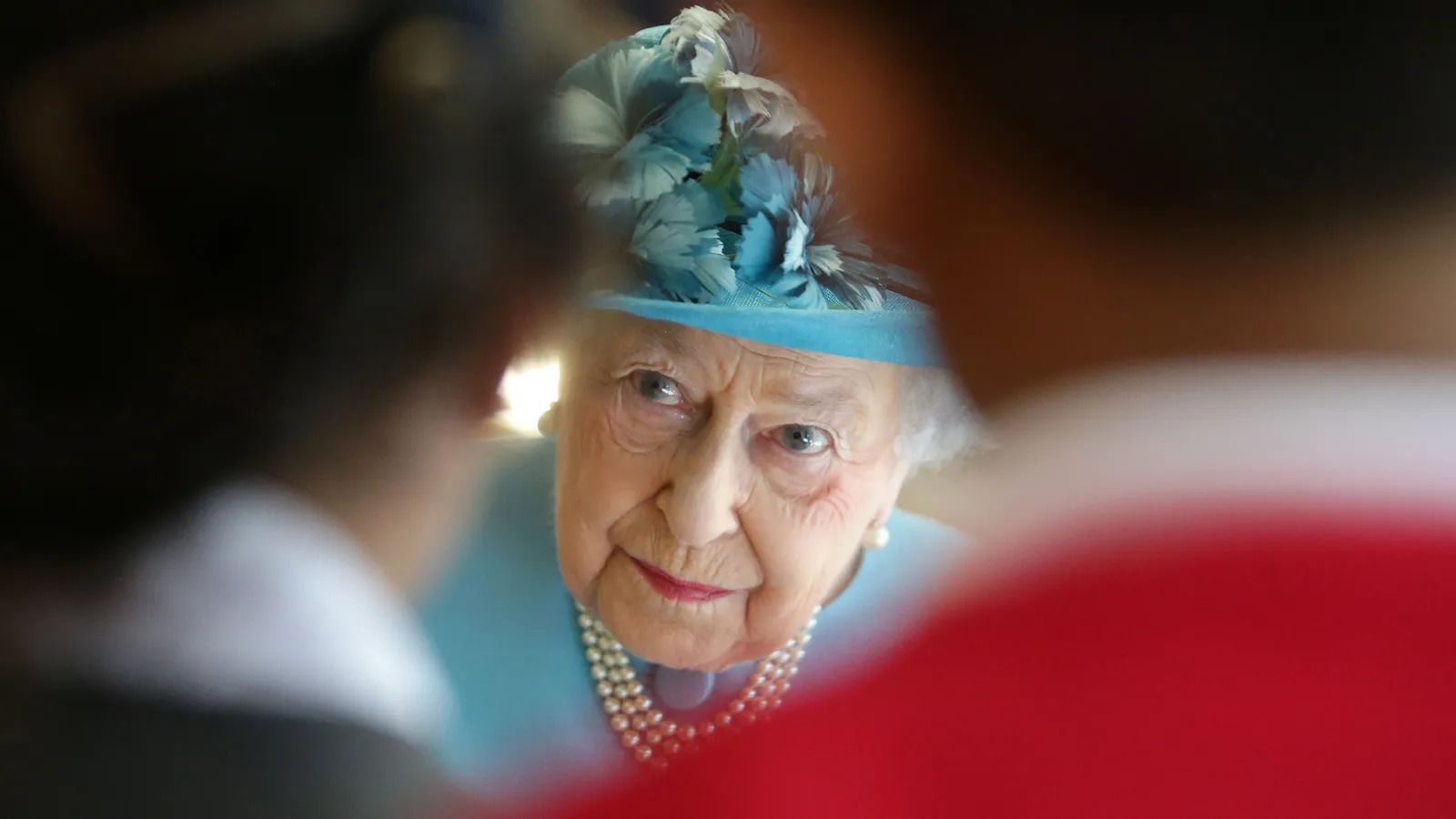 Every interaction we have with someone else can have a subtle influence on the way we speak
Every interaction we have with someone else can have a subtle influence on the way we speak
This shortening of the vowels is associated with a far more middle-class accent in Britain. And these changes continued into the 1990s, according to Harrington and Reubold's analysis, perhaps reflecting broader transformations in the wider population and society.
"The sounds of a community are updated because we imitate others' phonetic idiosyncrasies in conversation," says Harrington. "This updating within a conversation is so small that it is not perceptible, but experiments in the last 20 years have shown that we do indeed often imitate each other unwittingly."
One study by Harrington and his colleagues found that a small group of researchers in Antarctica who were from a range of different areas – Iceland, Germany, northwest US and various parts of the UK – began to develop embryonic signs of a common accent after spending several months together in close contact. Research on contestants taking part in the Big Brother reality TV show – where a group of strangers are forced to live together in isolation for several months – also suggests that some people appear to be more prone to their accents changing than others.
It seems likely then that at least some of the changes to the Queen's accent were simply a reflection of the people she came into contact with. The period between 1950 and 1970 saw enormous social revolution in Britain, Harrington and Reubold note. The boundaries between the classes blurred and the Queen perhaps conversed with more middle-class speakers.
The prime ministers she held weekly audiences with, for example, typically spoke a form of upper-class Received Pronunciation in the 1950s, but this gave way to a more diverse mix of accents from the 1960s. Harold Wilson, who held the office of prime minister twice for a total of eight years in the period between 1964 and 1976, retained his Yorkshire accent after growing up in Huddersfield, in the north of England. Margaret Thatcher, who was prime minister from 1979 to 1990, tried hard to disguise her middle-class upbringing in Lincolnshire, in the East Midlands of England. Numerous prime ministers also flirted at times with what is known as Estuary English – as did the Queen's daughter-in-law, Diana Princess of Wales, complete with glottal stops (more on this later).
The shift from Received Pronunciation on radio and television to a more diverse range of accents may also have played a role. Certainly, some research suggests our accents can be subtly influenced by the television we watch.
"We can see from the speech of younger royals that the Received Pronunciation spoken by the Queen in the 1950s has changed significantly, from a consonant and vowel point of view," says Setter.
Accents also still carry many hidden associations that prejudice the way we see the people who speak with them. In Britain, for example, people who speak with northern English accents can be seen as less well educated or less intelligent solely due to biases about the way they speak. Similar negative prejudices have been found to surround those who speak with a southern accent in the US.
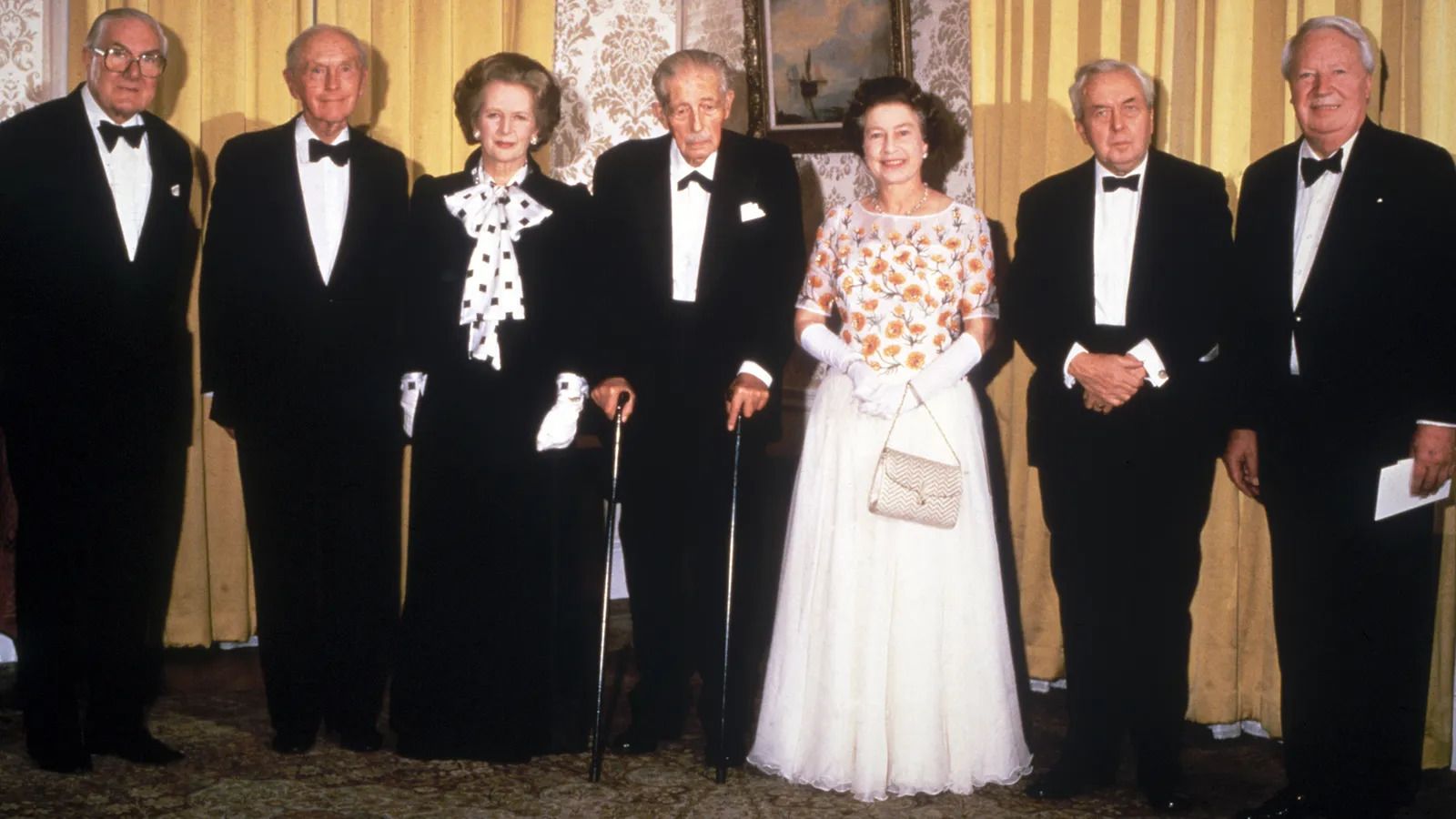 The Queen held weekly meetings with 15 British prime ministers who
served during her reign and these may have subtly altered how she spoke
The Queen held weekly meetings with 15 British prime ministers who
served during her reign and these may have subtly altered how she spoke
Received Pronunciation by contrast has consistently been regarded, within the UK at least, as the most "prestigious" English accent, according to surveys conducted in 1970 and again in 2005. But regular exposure to a variety of accents can also help to reduce those biases and increase trust in the speakers of different accents.
There has certainly been a shift in the stigma attached to certain aspects of speech in recent decades. The glottal stop, for example, which was traditionally associated with working-class speakers, has lost much of its stigma, even to the point that the t-glottal has become a common feature of Received Pronunciation, with the Queen's grandsons – Harry, the Duke of Sussex and William, the new Prince of Wales – using it.
So, could the Queen have deliberately changed her own speaking style to alter the way people perceived her, softening her Received Pronunciation to make herself sound less formal, and more approachable? It is a possibility that Harrington himself raises in one of his early studies on the Queen's accent, but he believes the gradual shift in her accent over several decades suggests the changes were unconscious ones.
There were other, perhaps more deliberate changes to the language the Queen used during her reign. The vocabulary she used became more diverse during the first decade on the throne, according to one analysis. The researchers behind the study speculate that this may have helped her build a closer rapport with her people during the difficult post-war period.
They also note that the Queen's vocabulary continued to increase in richness as the monarchy itself underwent reforms, such as paying taxes on personal wealth and opening official residences to the public. She also appears to have adapted her vocabulary to reflect the shifting sensitivities around race, religion, gender and health, while also making extensive use of inclusive and unifying language as she appealed to her audience. For example, she made extensive use of personal pronouns such as "we" and "our" in later speeches, such as her address to the UK and Commonwealth at the height of the Covid-19 pandemic.
From around 1990, after the age of 64 years old, the Queen's vowels began to move back towards being more like those she used in the 1950s
Apart from being a powerful reflection of broader social change, the shift in the Queen's accent also illustrated an aspect of human development that is gaining increasing attention: how our the way we speak and our voice itself continues to change throughout our lives.
Previously, it was assumed that the big changes in our voice happened in childhood and adolescence, after which one's accent was thought to be fairly fixed. But now, research is beginning to show that our voice is more flexible than we might think, and that we can still modify it substantially throughout our lives, and even in old age.
This flexibility has been found not just in the voice of Queen Elizabeth II, but in those of other influential women around the world – as well as in the wider population.
For example, a study investigating speeches by Queen Beatrix of the Netherlands between the ages of 42 and 74 found that overall, she spoke faster in the later speeches. This was thought to possibly be a reflection of the broader change among Dutch speakers, whose speech had generally sped up.
Ruth Bader Ginsberg, the late Supreme Court judge, was also found to have changed her accent, according to a study of her speech. As a lawyer arguing cases before the Court, she was found to have dropped her native New York City accent. But later, when she was a Supreme Court judge, she returned to that accent of her youth, the researchers found. They speculated that she had perhaps suppressed the "stigmatised New York City vernacular variants", out of a subconscious or conscious worry that this accent would be seen as strident, as was a common prejudice at the time. But once she was Justice Ginsberg, she perhaps no longer had to concern herself so much with how the Court perceived her, since she was part of it.
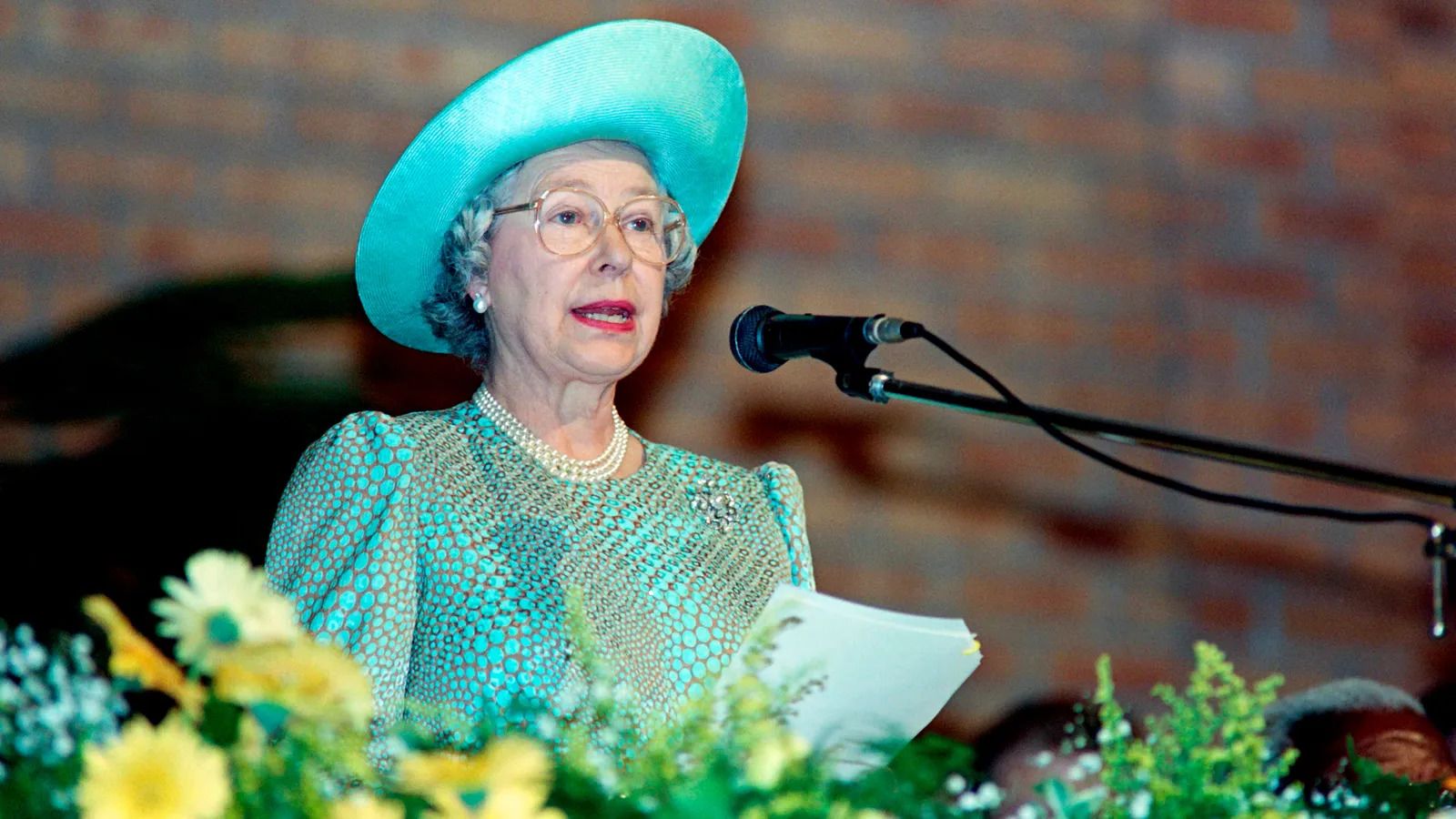 From around 1990, the Queen's accent began to gradually revert to the way she spoke in her younger years
From around 1990, the Queen's accent began to gradually revert to the way she spoke in her younger years
And this is where one of the most interesting and perhaps poignant shifts in the Queen's accent offers another intriguing puzzle. From around 1990, after the age of 64-years-old, the Queen's vowels began to move back towards being more like those she used in the 1950s. The biggest changes were in vowels such as "a" as in "trap", the final "y" in words like "happy", and the "oo" as in "goose". They all showed a subtle change back towards the sound of the Queen's younger years. It wasn't a full reversion, however – the vowels still sounded more mainstream and modern than they did in the 1950s.
Despite the social changes happening around the Queen throughout her long reign, these later shifts in her accent are slightly puzzling – particularly because the social changes that may have led to the original shift to more everyday speech did not reverse. But there may have been other factors at work.
This kind of reversion has been found in a number of different circumstances. In bilingual speakers, for example, ageing or damage caused by a stroke can cause a return to their original native language or accent, although in a more pronounced way than was seen in the Queen's case as there is no suggestion she ever suffered a stroke. It can also happen with regional accents within one's native language, say, from British English to American English, and back.
One explanation for the Queen's slight return to the vowels of her youth could be down to the way our memories work as we age, suggests Harrington. Older pronunciations of words may be lodged more deeply in our memory and so more entrenched, while our ability to draw on more recent interactions with the people around us declines as we age.
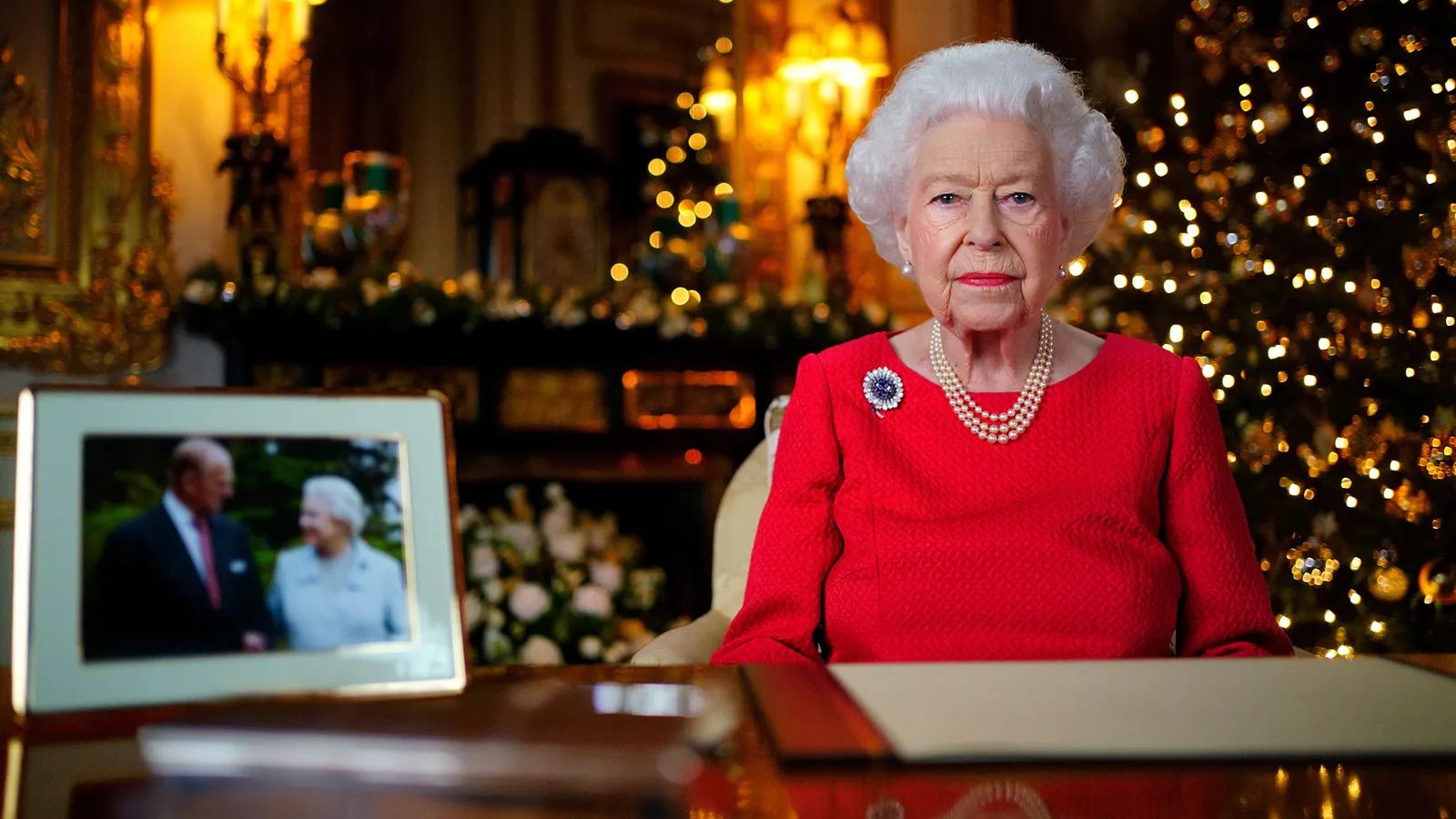 The Queen's final Christmas broadcast in 2021 saw her reflect on past memories
The Queen's final Christmas broadcast in 2021 saw her reflect on past memories
"How we speak is largely shaped by an accumulation of memories of all the people we have ever spoken with," says Harrington. "This accumulation of memories seems to deteriorate with increasing age, but since it is the more recent ones that deteriorate first, then those memories associated with youth and early childhood may well become more dominant."
The pull of the past could also have played a role. Reminiscing or reflecting on events from earlier in her life, which the Queen did often in her later speeches, could also lead to the use of older pronunciations related to those memories.
Most of all, however, the words the Queen shared with millions of people around the world in her distinctive voice – in all its subtle, shifting forms – will for many people forever be tied to the memory of the warmth and affection she evoked. Her passing marks the end of an era, and the end of a long, unbroken record of change reflected in the way she spoke.
"I have great admiration for Queen Elizabeth II in so many ways," says Harrington. "And not least because of her commitment to give up a large part of her Christmas Day for a live public address to the nation and to millions worldwide every single year without any interruption for seven decades."
In his first public speech after ascending to the throne King Charles III thanked his "darling Mama", just as the Queen had remembered her "beloved father" in her own Christmas broadcast as a young woman, all those decades ago. It remains to be seen how the royal accent will continue to evolve as he begins his reign.















